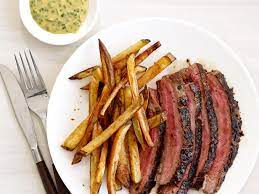

Much as what we eat has a profound effect on our physical fitness, so too does our diet influence our cognitive fitness. And while there is no scientific evidence that adopting a singular diet regime prevents cognitive decline, incorporating certain foods, and minimizing intake of others may positively impact cognitive function, potentially reducing the risk of dementia/Alzheimer’s and improving memory.
The following tips are brought to you from Monica Marcella, MS, RD, RVNAhealth’s registered dietitian and nutrition educator.
Get Fishy


Go Green


Cut the (bad) Fat


Consider the MIND Diet
The MIND diet is a hybrid of the Mediterranean and DASH (Dietary Approaches to Stop Hypertension). Research studies have found that the MIND diet may reduce a person’s risk of developing Alzheimer’s disease dementia. The MIND diet encourages 10 food groups to enjoy, and 5 food groups to avoid/limit.
10 Foods to Eat on the MIND diet
- Green leafy vegetables: At least 6 servings a week
- All other vegetables: At least one a day and choose non-starchy veggies for their low calorie/high nutrient ratio
- Nuts (a variety of kinds): 5 servings a week
- Berries (like blueberries or raspberries): 2 or more servings a week
- Beans (all beans, lentils, soybeans): 3 or more servings a day
- Whole grains (oatmeal or quinoa): 3 or more servings a day
- Fish (like salmon or trout): 1-3 times a week
- Poultry (like chicken or turkey): 2 times a week
- Olive oil: Use it as your main cooking oil
- Wine (optional and approved by your physician)
5 foods to limit on the MIND diet
- Red meat: Less than 4 servings a week
- Butter and margarine: Less than a tablespoon daily
- Cheese: Less than 1 serving a week
- Pastries and Sweets: Less than 5 servings a week
- Fried or Fast food: Less than 1 serving a week
While nutrition is one factor in maintaining optimal cognitive function, small lifestyle improvements can also have maximum impact, including daily exercise, getting plenty of sleep, and minimizing stress. For a nutrition evaluation, contact RVNAhealth’s Monica Marcello, Registered Dietician and Nutrition Educator at mmarcello@rvnahealth.org or by calling 203-438-5555.





